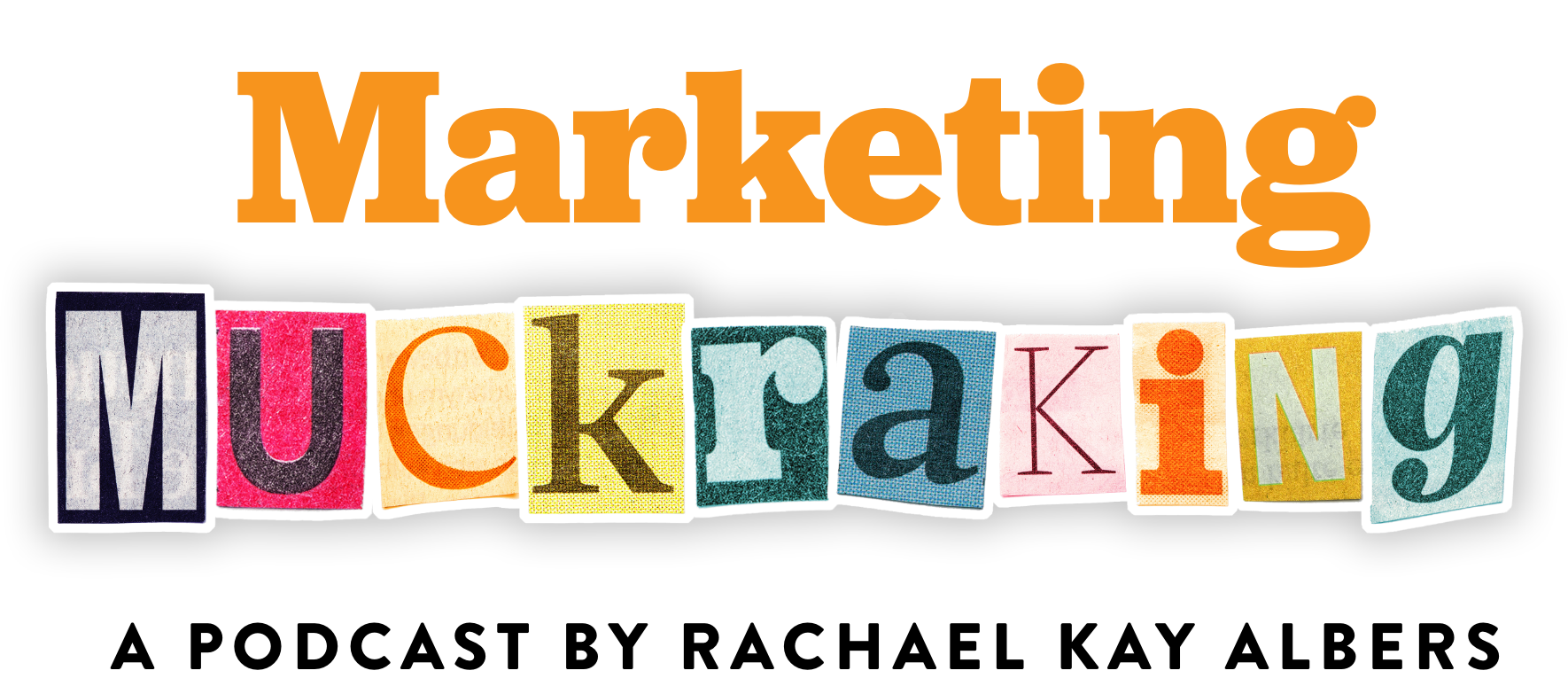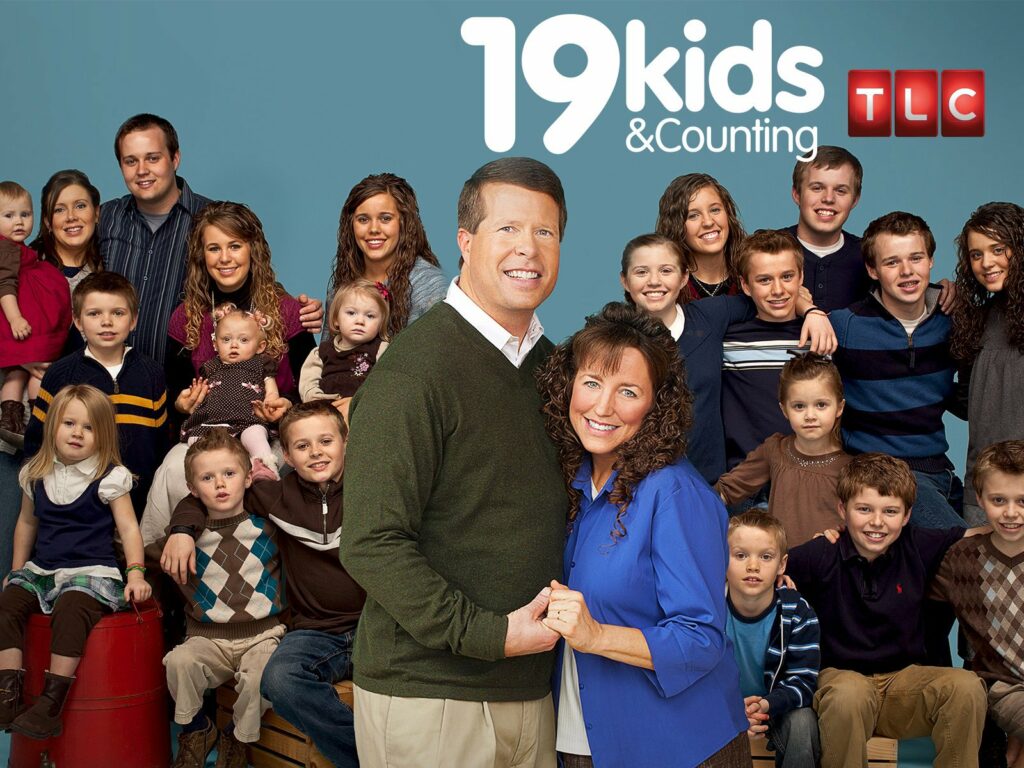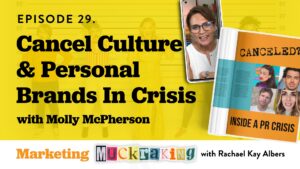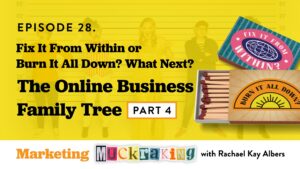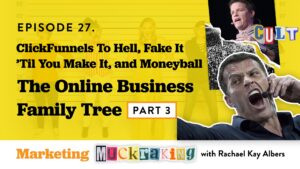Content warning: this episode touches on sensitive topics that include sexual assault, child abuse, and religious trauma.
Shiny Happy People: Duggar Family Secrets released on Amazon Prime on June 2.
In this episode, I review the docuseries through the lens of marketing muckraking, looking at how the Duggars and the IBLP used modern marketing, branding, and PR to re-write history as it was happening, in a bid to arrest political control of the country.
Mentioned on the show:
- Shiny Happy People: Duggar Family Secrets
- Purity culture #1 on TikTok
- Purity culture #2 on TikTok
This podcast is about exploring, not what brand culture can do for us, but what it’s doing to us — and the Duggars are the perfect example of how the age of the personal brand allows master manipulators to weaponize modern marketing tools to actively re-shape public perception and re-write history as it is happening...with tragic consequences.
If you never watched "19 Kids and Counting" or tuned into the Shiny Happy People docuseries, I’m going to give you the TLDR;
(And if you’re a snarker like me and all caught up on Shiny Happy People — this episode will cover some of the ground that the docuseries didn’t.)
Who are the Duggars? Why should we care?
You may have heard of the Duggars from their TLC reality show, "19 Kids and Counting," which was a show about “a Christian homeschooling family with 19 children and how their family functions,” according to IMDB.
The show positioned the Duggars as a wholesome, all-American family with some “unconventional” quirks like not kissing ’til the altar, dressing like characters from The Handmaid’s Tale, and always being “joyfully available” to one’s husband whether you like it or not, because, as Michelle Duggar famously said, “anyone can make him a sandwich, but only you can satisfy that one special need.” You know, just wholesome, quirky, rape culture stuff.
Sorry — purity culture stuff — as the Duggars would say. Talk about rebranding.
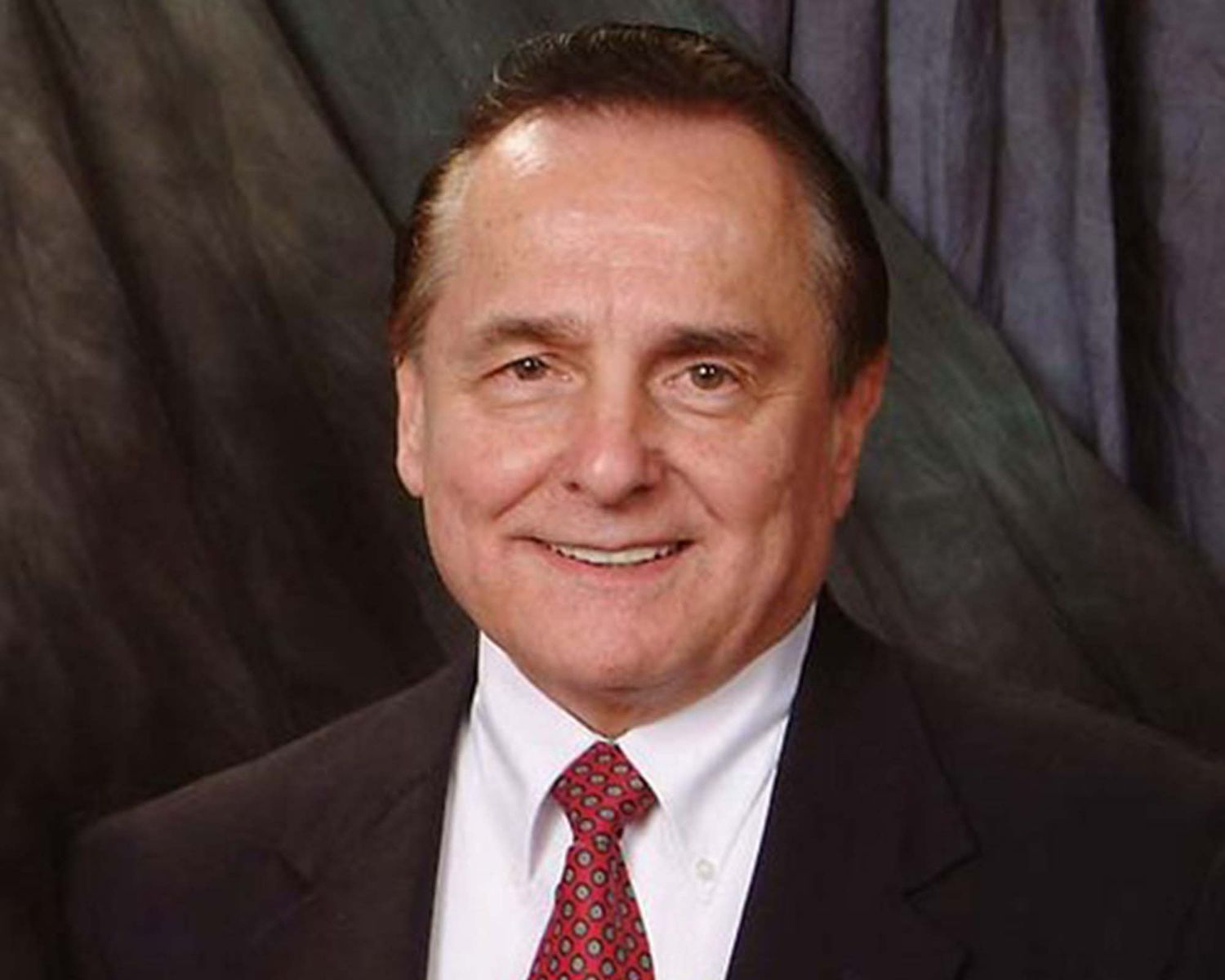
In reality, the Duggars were brand ambassadors for the religious cult known as the IBLP or the Institute in Basic Life Principles, which was founded by sexual predator Bill Gothard in 1961.
The IBLP’s teachings centered around authority. Gothard believed that the decline of American values came from straying from biblical authority, which is the belief that God is the ultimate authority, men are earthly stewards of that authority, and women and children are to stay under this “umbrella of protection.”
The way this played out was through rigid purity culture standards that told women they were not only to submit to their fathers and then husbands, but also that their very existence was an inherent threat to men’s sexual morality.
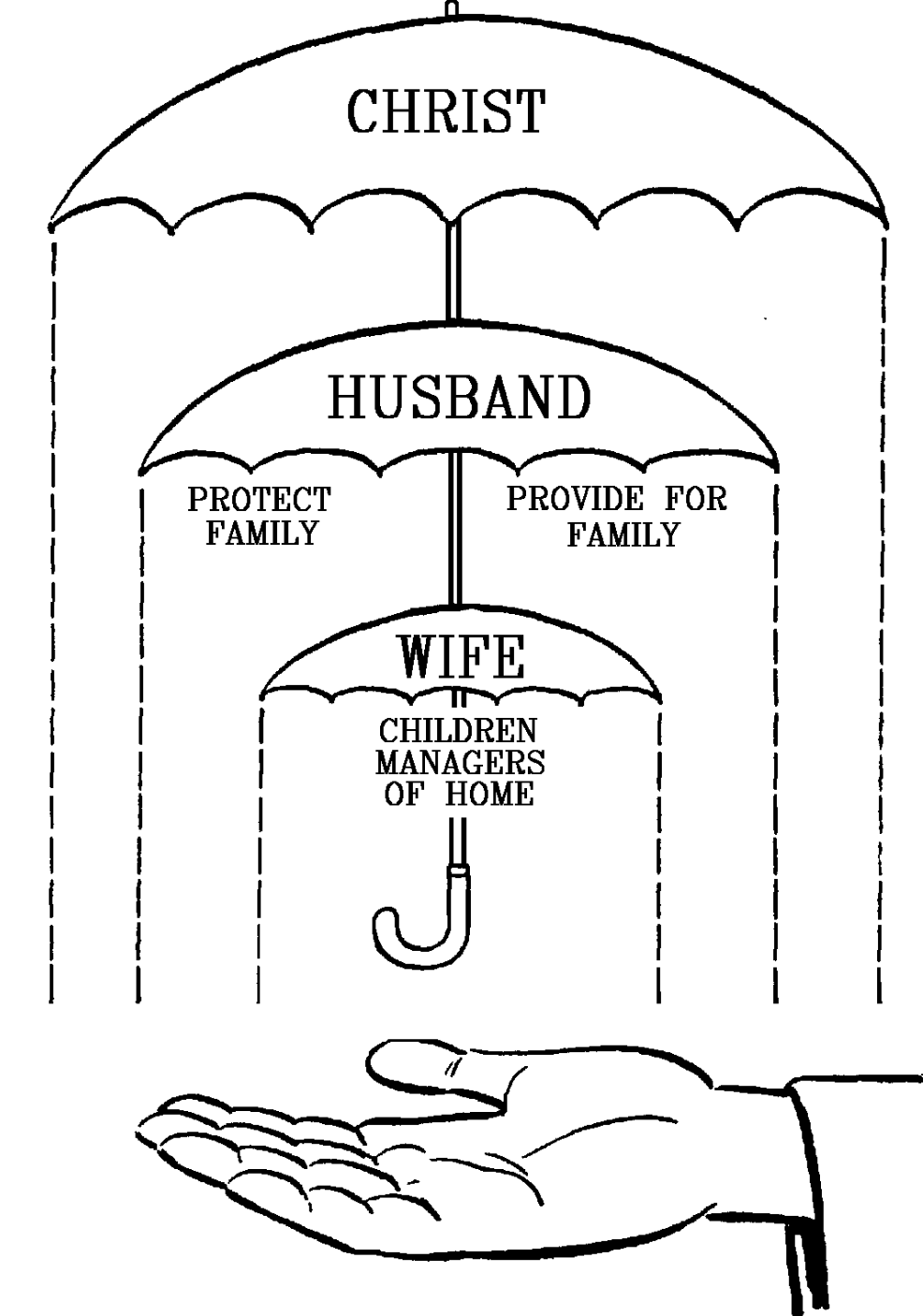
Hence the IBLP’s strict rules about what women could wear, say, and do — with the underlying understanding that it is a woman’s job to protect her brothers in Christ from sexual immorality by not dressing in a way that would “defraud” him and lead him to sexual sin. Victim blaming 101.
Gothard, whose father was the executive director of Gideon International — the organization responsible for those Bibles you find in hotel room night stands — was known as the “dominionist alternative to Dr. Spock.” Dominion theology is the teaching that Christians should rule the world. Literally.
Dominionists believe in Christian nationalism — the idea that the United States was founded as a Christian nation and should be returned to its roots by putting religious leaders in government positions to align the laws of the land with the laws of the Bible. Puts a whole new spin on “Make America Great Again.” (“Make America Gilead Again” is more like it.)
As Brooke Arnold described it in Shiny Happy People, "19 Kids & Counting" was a “PR show for Gothard’s teachings.”
The goal was to use the Duggars as spokesgrifters for the IBLP to mainstream their extremist beliefs so they could gain political control.
To use marketing speak, the Duggars functioned as a “proof of concept” for the IBLP’s ideology, softening America’s perception of fundamentalism. Many people who watched the Duggars saw them as “wholesome” folks with “good ol’ American values” — which was exactly the point: position the Duggars as model Americans so that, eventually, the IBLP could take over America and model it in its own image.

The IBLP has been successful in this. Not only have their members held positions in local, state, and national political office, but they also created “secular” trainings and curriculums, most notably the Character First program, that are in use in public schools, law enforcement agencies, federal government agencies, prisons, and Fortune 500 companies, across the country and the world.
Over 200 cities nationwide (and in 27 countries around the world) have designated themselves as “Cities of Character” — as part of IBLP’s campaign to spread their teachings into government. Sarah Palin attended an IBLP seminar in 2000 and then made Wasilla, Alaska a character city.
At the same time, as all this was happening, in 2014, 34 women came forward to accuse Bill Gothard of sexual harassment or abuse.
And, in 2015, while eldest son, Josh Duggar was working as the executive director of the lobbying arm of the Family Research Council, an evangelical think tank promoting “family values” — news broke that Josh had sexually abused his own sisters in the early 2000s, which Jim Bob and Michelle covered up so they could land their TLC show.
Later that year, Josh made the news again when his infidelity was revealed as part of the Ashley Madison data breach.
And it gets worse. In 2021, Josh Duggar was arrested on charges of possessing child sexual assault imagery. Later that year he was found guilty and in 2022, sentenced to 12 years in prison.
This is what I meant when I said the age of the personal brand allows master manipulators to weaponize modern marketing tools to actively re-shape public perception and re-write history as it is happening — with tragic consequences.
What I think is worth noting, that didn’t make it into the Shiny Happy People docuseries, is that when Josh sexually abused his sisters in 2002 — crimes that his parents actively covered up to preserve the family brand — Jim Bob Duggar was campaigning for U.S. Senate on a platform that rape and incest should be punishable by the death penalty.
But what did Jim Bob and Michelle do when they found out that their eldest son was guilty of these crimes? Sent him to an IBLP work camp to do hard labor for a few months and then, when he returned home, put him front and center on "19 Kids and Counting" as an emblem of purity culture.

The show meticulously documented his courtship, engagement, and marriage to his wife Anna. Including an utterly cringeworthy scene where Jim Bob sits Josh down to tell him about the birds and the bees. Josh serenaded his bride at the altar with the IBLP “Loyalty Song” where he pledged faithfulness to her in good times and bad. Well, we know how that turned out.
When Josh’s initial crimes were revealed in 2015, the Duggars appeared on Megyn Kelly, forcing Josh’s victims to publicly exonerate him so that their show could continue. "19 Kids and Counting" was rebranded to "Jill and Jessa: Counting On," and the show continued, without Josh’s involvement, until he was arrested in 2021.
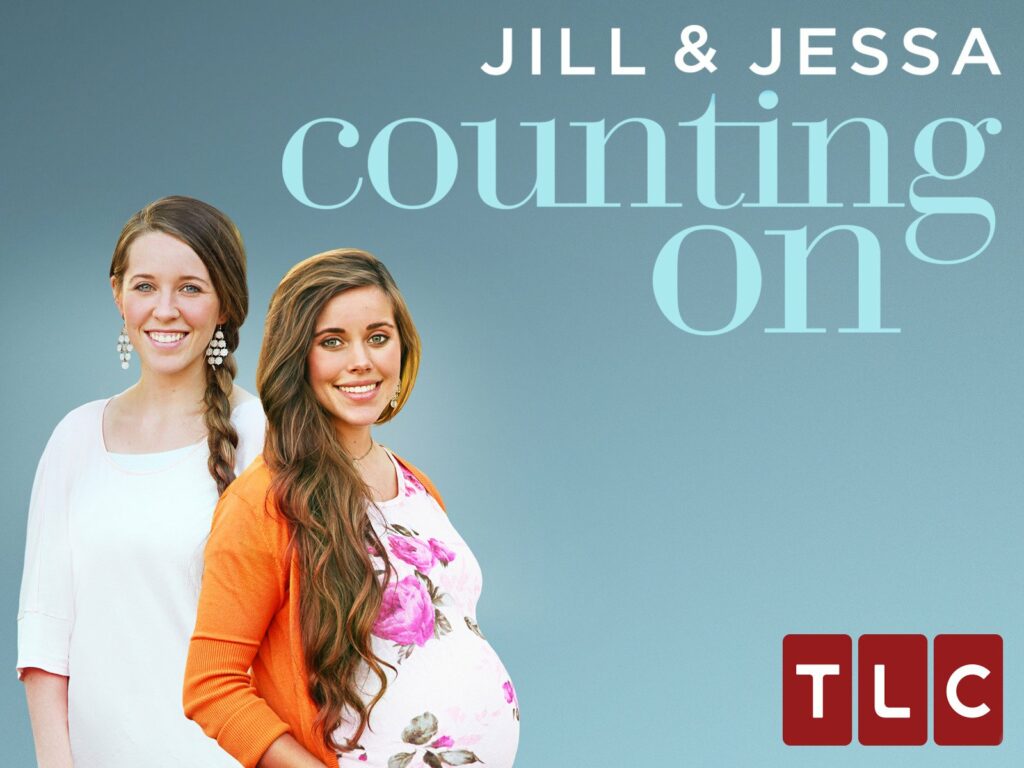
Not only were Jill and Jessa responsible for protecting the family brand when their family didn’t protect them — they weren’t paid for most of their time on the show.
They were victimized by the cult, victim blamed by the cult, and then forced to be the cult’s victors.
Bringing this back to marketing muckraking, here’s why all of this is important: the Duggars leveraged marketing and PR, not only as brand ambassadors of the IBLP cult, but to rebrand their family in the public eye after Josh’s first crimes came out, and to rebrand the abuse within their own community and family — including with his victims.
In other words, good ol’ godly gaslighting.
In this episode, I’m going to break down the 10 Commandments of Marketing Manipulation, i.e. how the Duggars and the IBLP used modern branding, marketing, and PR to achieve everything I just described. And how we can spot this in the wild, whether it’s a cult or a coach or a company.
My experience in purity culture
But first, I want to tell you a little about why I’m so personally invested in this particular dark side of the age of the personal brand.
I was not raised directly in the IBLP — I’d describe my own upbringing as “fundie lite” — my home church was actually down the road from the IBLP’s headquarters in Oak Brook, Illinion. I had family who attended Wheaton College in the years after Bill Gothard founded the IBLP, so IBLP teachings bled into my own upbringing.
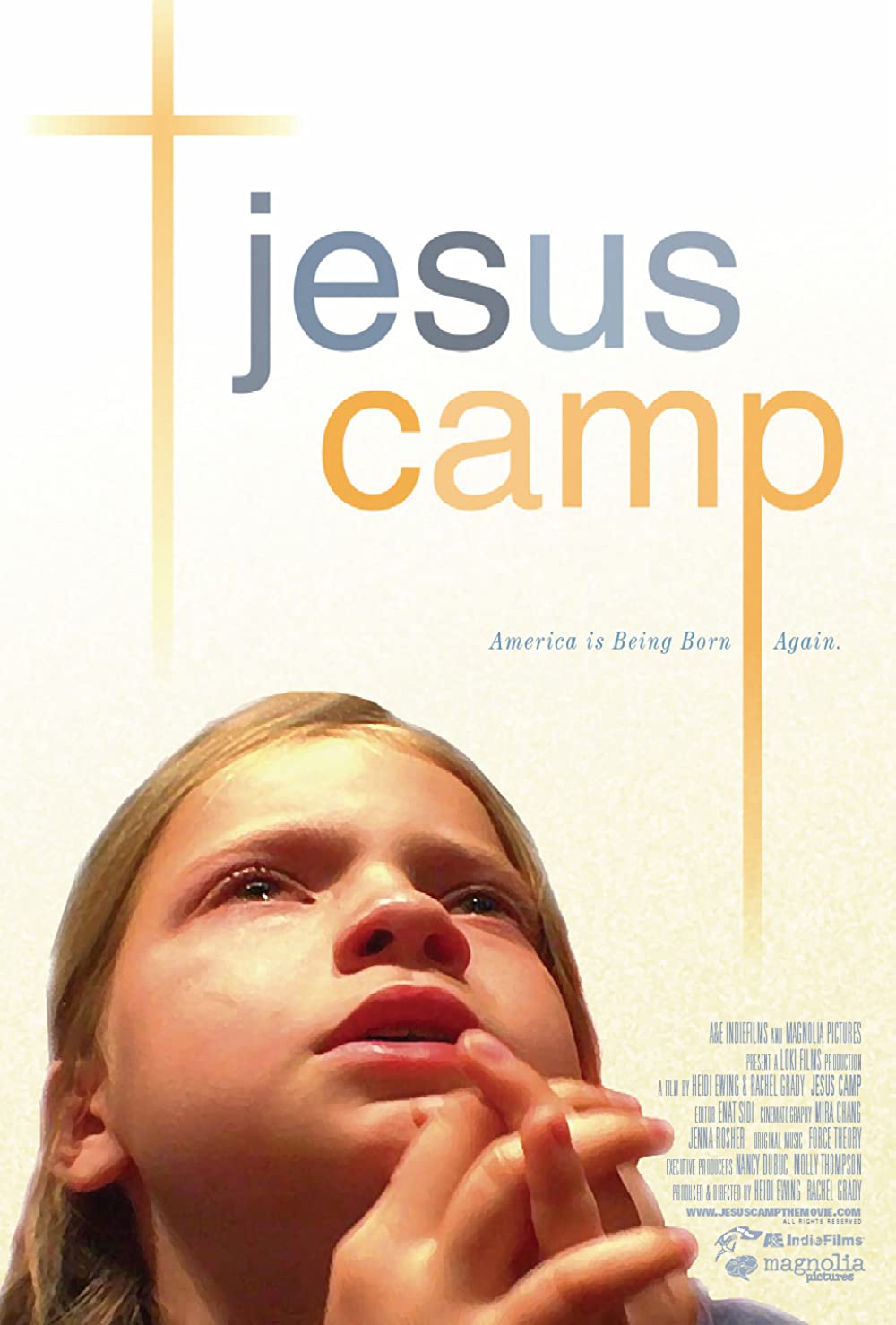
For multiple summers I attended a “Jesus Camp” of sorts —if you’ve seen the documentary by the same name, then you know what I’m talking about. The other kids spoke in tongues and “true believers” broke down sobbing asking Jesus into their hearts.
The number of tears you wept for the lord was considered somewhat of a status symbol in this culture. This is actually how I got “saved” at that time. I looked around a field of thousands of other kids crying out to God to save them from hell and knew that if I didn’t join them, they’d make my own life hell on earth.
All my church friends got purity rings — I did not. I think this is because my own parents considered me “damaged goods” at a young age. They accused me of trying to seduce grown men when I was 7 years old. Sound familiar? One of my dad’s favorite nicknames / insults for me was “Little Queen of Sheba.”
By the time I got to my early 20s, I was convinced that all the harm that had befallen me in my life was the result of having sex before marriage. I pledged myself to be a “born again virgin” to earn back God’s favor. Then, I deconstructed. (And that’s just a small part of a much bigger story on how RKA became a muckraker.)
Flash forward to today, I’m nearing 40 and I’m still actively deconstructing how purity culture and religious trauma continues to affect how I see myself and relate to the world around me.
I’m sharing some of my story here because, unlike many cults — whose beliefs are often mysterious and secretive to everyone but their members — in the case of the IBLP, whose goal was “world domination” as Chad Harris described it in Shiny Happy People — their intention was for the beliefs to bleed into society so the connection back to the cult became indistinguishable.
So you might not have ever heard of the IBLP or the Duggars, but you have still likely come into contact with their beliefs, either through curriculum in your public school, programs in your local government, purity culture teachings that spread into the mainstream, or — today, a political climate where right wing extremists are trying to make what they call “biblical truths” the law of the land.
The 10 Commandments of Marketing Manipulation
So, how did they do it? Let’s break down the 10 Commandments of Marketing Manipulation, so you can spot this shit in the wild, whether it’s a cult, a coach, a company:
1. Thou shalt build a personal brand
The Duggars were recruited to be the human faces of the IBLP brand. As writer and marketing expert Onicia Muller puts it, the Duggars were the IBLP’s “proof of concept.”
We naturally tend to look at people with less scrutiny than we do companies or organizations — so personal branding was the perfect vehicle for mainstreaming the IBLP’s ideology. Fall in love with this wholesome American family and you won’t be as quick to examine their ideas. This makes it harder for you to believe that they are harmful, even when presented with glaring evidence — as happened in 2015 when news of Josh Duggar’s abuses came to light.
We don’t demand financial liability or a corporate accountability from a Tony Robbins, a Rachel Hollis, a Kim Kardashian the way we would a Nike, a McDonald’s, a Coca-Cola (even if these personal brands function at the same level as a corporation).
The more human a corporation becomes, the less we analyze its impact, or expect accountability. “They’re just people, like you and me! Do you want to destroy their livelihood?”
The layers of Duggar branding run deep because:
- They are a family brand and a brand family — the Duggars themselves are a brand and each of their kids is a personal brand — hence the title of this episode, 19 Brands and Counting.
- They were brand ambassadors for the IBLP;
- They actively rebranded abuse within their own family and community, so that when it happened, members wouldn’t be able to name it, because they had been gaslit into believing it was their fault.
2. Thou shalt agitate pain points and promise a magic cure
The IBLP rose to success by agitating the “pain point” that many conservative, white American families felt at seeing their power and privilege diminish in the wake of the Civil Rights Movement. Of course, Gothard never used those words, he used dog whistles like “family values” and spoke to the right wing’s desire to “take back the nation.”
He then sold his seminars as the quick fix to what ailed his audiences. Speaking to a stadium of people, Gothard told them: “One of the joys of being here this week is knowing beyond a shadow of the doubt, that we have for every one of you The Answer on how to conquer any habit you have.”

The 1988 video introduction to the IBLP Basic Seminar features members saying:
- “Our lives were falling apart around us…”
- “This Institute saved my life…”
- “That first night that Mr. Gothard spoke, I just wept…”
Add in Michelle Duggar’s testimonial:
“We gave our life to God and he just kept blessing us.”
These read like testimonials on a sales page for whichever huckster du jour happens to be in the spotlight today.
Most recently, it was Matthew McConaughey who has linked arms with Tiny Tony Robbins and Uncle Dean Graziosi in their latest ClickFunnels grift. Yes, Matthew McConaughey is a LIFE COACH now, so now you know the apocalypse is nigh.
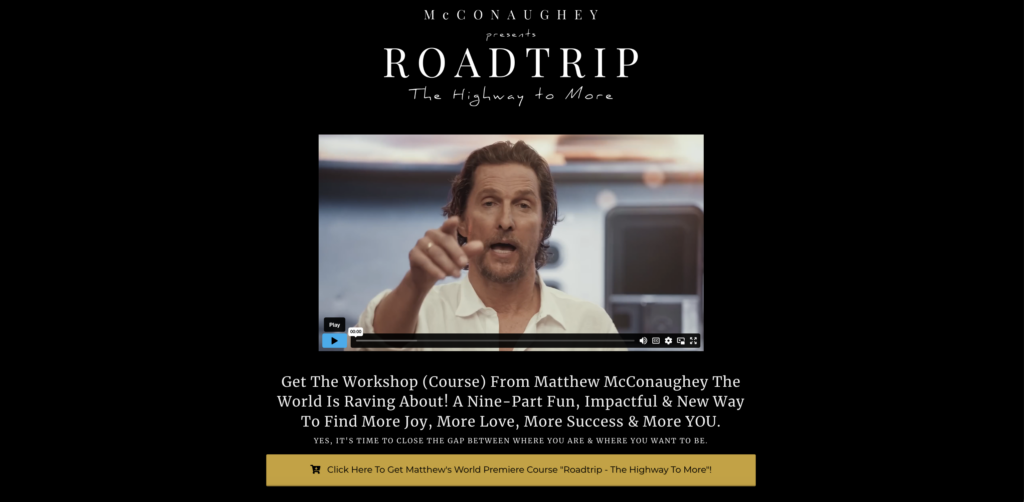
The first sentence of the trailer on the sales page for his “Highway to More” Roadtrip program (only 4 easy payments of $150) is “How do you want to be introduced when you’re gone?” Ain’t no greater pain point than facing your own mortality, am I right?
Well, compare this with one of Bill Gothard’s speeches:
“When you get to the end of your life, what do you want to be able to look back and say this is what God accomplished through my life?”
The IBLP stirred up fear and then offered them a cure — if you’re afraid that your family and the nation are going to hell in a hand basket, well do we have something for you…
Only 4 easy payments of your life, agency, dignity, and the safety of your children…
3. Thou shalt fake it ’til you make it
Jim Bob and Michelle toured the country giving seminars on raising godly, obedient children — all while they were actively covering up Josh’s crimes.
Bill Gothard has never married and doesn’t have any children. But he built an empire around telling others how to do so successfully — all while his followers repeatedly failed to implement his teachings.
But in both cases, the branded veneer of success — validated by a wildly popular national reality show — was enough to convince the world that these impostors were the real deal.
In the age of the personal brand, the rule is — perception is reality.
This is how Rachel Hollis and Dave Hollis sold high-end marriage retreats when their own marriage was falling apart. This is how Elizabeth Holmes secured nearly a billion dollars in funding for technology that never existed, endangering peoples’ lives in the process. It’s how Anna Delvey conned her way through New York’s high society. It’s how Billy McFarland sold 5,000 tickets to Fyre Fest, a music festival that he knew would never happen — destroying countless small businesses in the process and taking his friends down with him.
And again, this is what I meant when I said at the top of the show that when personal branding is used as a tool to re-shape public perception and re-write history as it’s happening, it can lead to disastrous consequences.
4. Thou shalt ride the cultural moment.
If I’ll give Bill Gothard any credit, it’s for his strategic ability to take a free ride on a cultural moment.
Over the past 50 years, brands have typically been amongst the first to respond to culture shifts by advertising themselves as the change the world needs — even and especially when their behind-the-scenes practices are anything but.
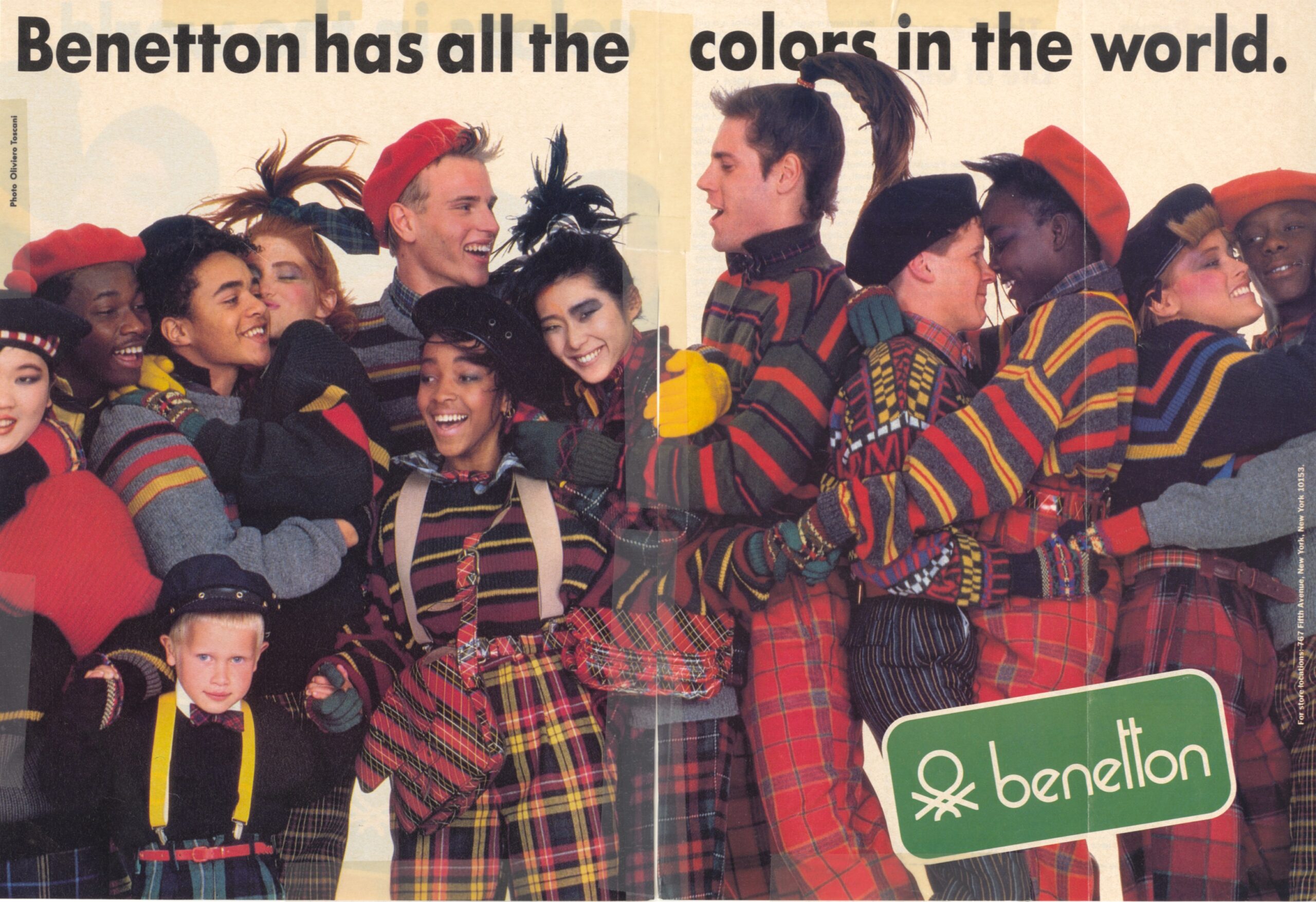
Naomi Klein describes this in NO LOGO, when she writes about how during the “political correctness wars” of the 90s, brands spent money — not to address underlying social and economic injustices their companies were causing — but on ads depicting a unified, multicultural, global village.
These ads created a mirage of progress. If you were an alien from outer space gleaning your understanding of the world purely from the advertisements of the day, you’d think we were a technicolor utopia of diversity and inclusion.
Instead of starting a new conversation, brands have evolved to adapt their messaging to the cultural conversations of the moment, shapeshifting according to whatever change is happening now.
In an essay for The Nation, Max Blumenthal writes that “Gothard first grew popular during the 1960s by marketing his program to worried evangelical parents as anti-hippie insurance for adolescent children.”
The IBLP’s very existence was a response to a cultural moment — only instead of selling the illusion of progress, Gothard sold his teachings as a return to the good old days during a time when conservative white Americans saw their power and control slipping.
5. Thou shalt sell nostalgia for a non-existent time
Bill Gothard was selling MAGA before MAGA existed — Make America Gilead Again.
In Shiny Happy People, sociologist Danielle Lindemann describes this as “Hearkening back to some imagined past time where things were simpler and roles were more clearly defined.”
Only this bygone time that Gothard and the Duggar’s show hearkened back to never existed to begin with.
This marketing strategy is not new. Nostalgia sells better than sex.
When brands first came on the scene in the late 19th century, consumers weren’t used to buying from companies, so they resisted advertising claims until they were cajoled into lowering their defenses.
Early brands built trust by summoning up images of life before industrialization — often with old, wise, grandmotherly figures that sold the promise of simpler times. In reality, life was anything but simple before and after the industrial revolution. These better days were a figment of the collective imagination that advertisements made come true — almost like the reverse effect of “fake it ’til you make it.”
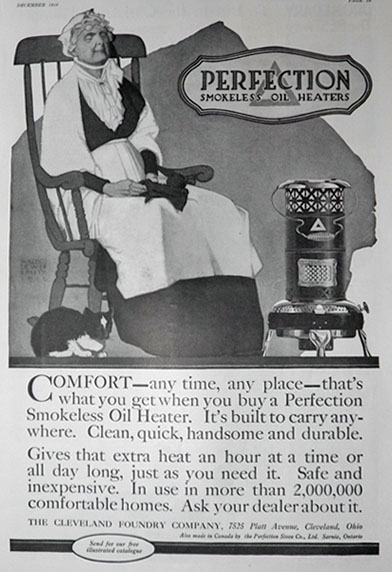
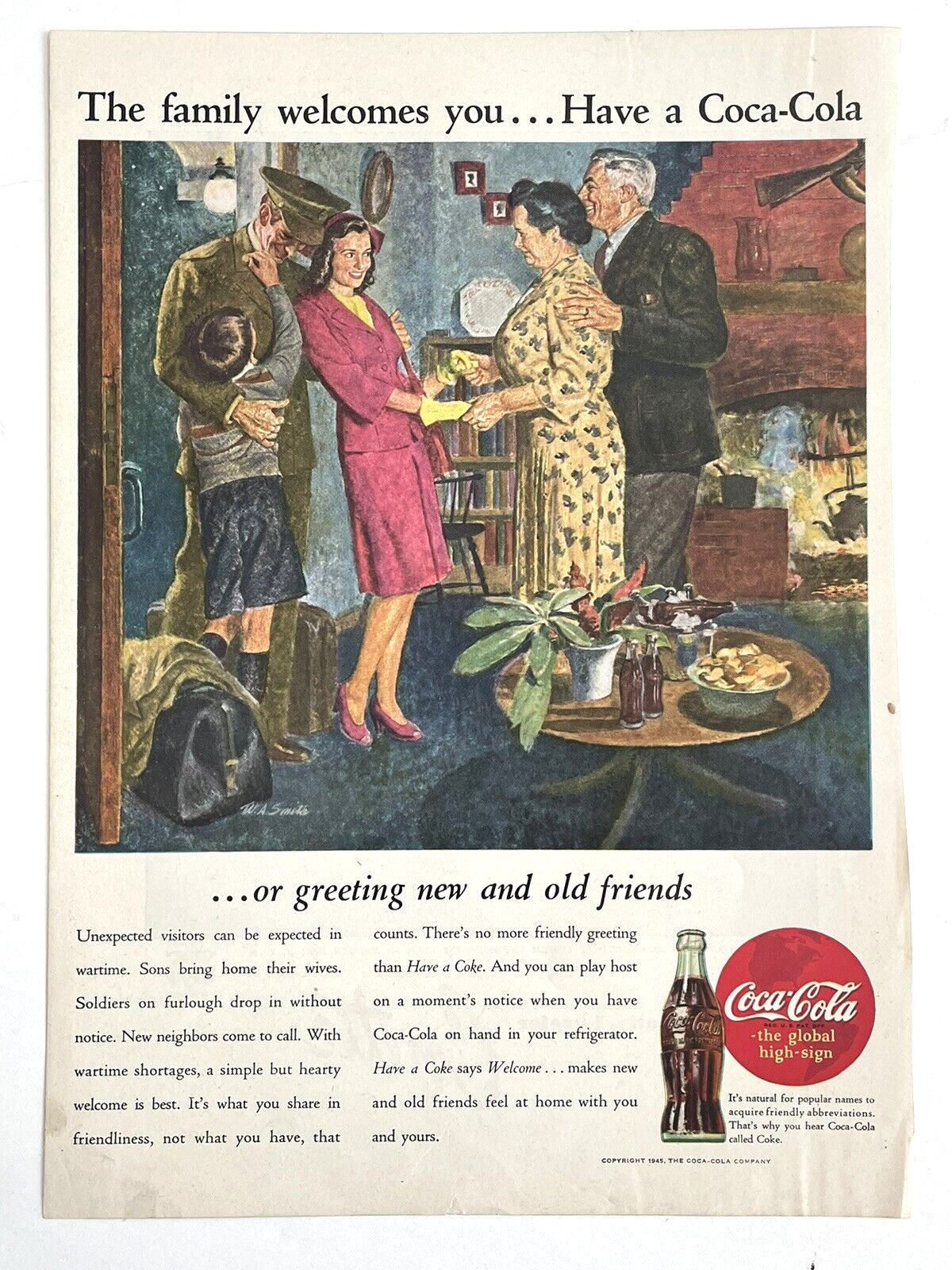
This practice has never gone out of style — it’s what kept advertisers afloat during WWI and WWII, when Americans were anxious about how war was changing the nation and the world. Advertisers leaned into ads portraying the quality of life that Americans were told they were fighting for. And many of those WWII era ads, depicting an ideal of suburban family life that was at best a caricature of a small fraction of the country’s reality, still get dredged up today by conservatives like Gothard, as proof that we’ve lost our way.
Fundamentalist influencers of the day often use these very advertising images unironically in their Instagram reels and TikToks, unaware that these portraits of American life once upon a time were manufactured by marketers to sell their products.
In the IBLP’s case, the product they were selling was the patriarchy.
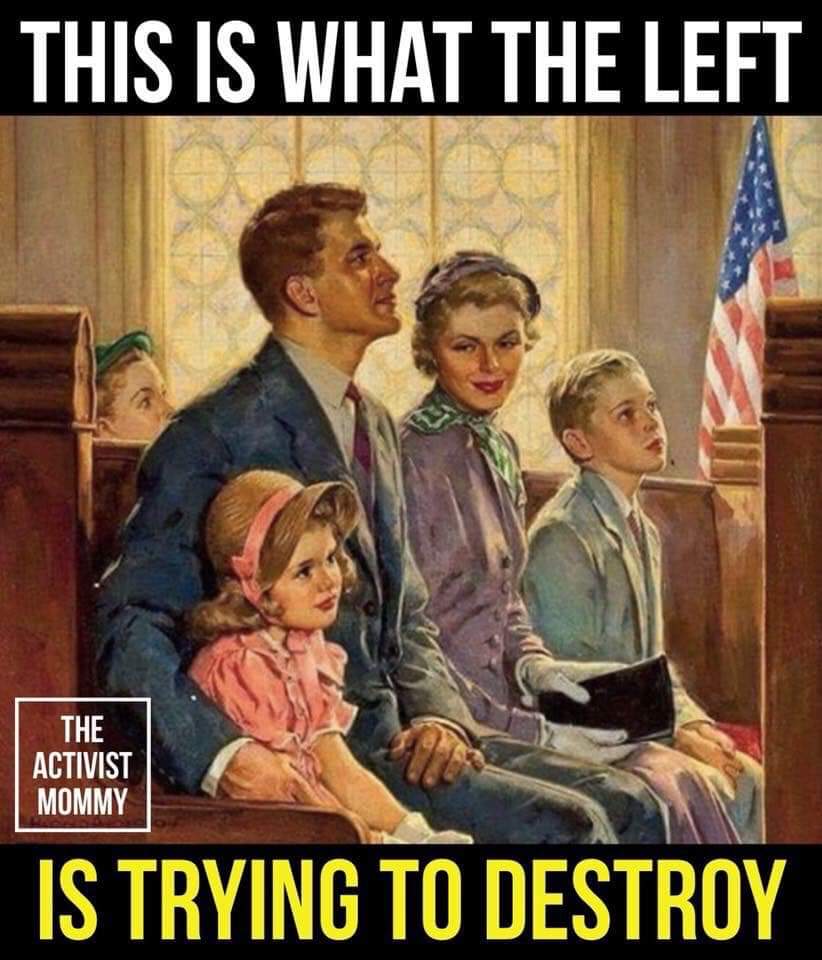
6. Thou shalt clickbait and switch
If nostalgia sells better than sex, so does sensationalism.
The Duggars captured the nation’s attention because the concept of one family having nearly 20 children boggled the average American’s mind.
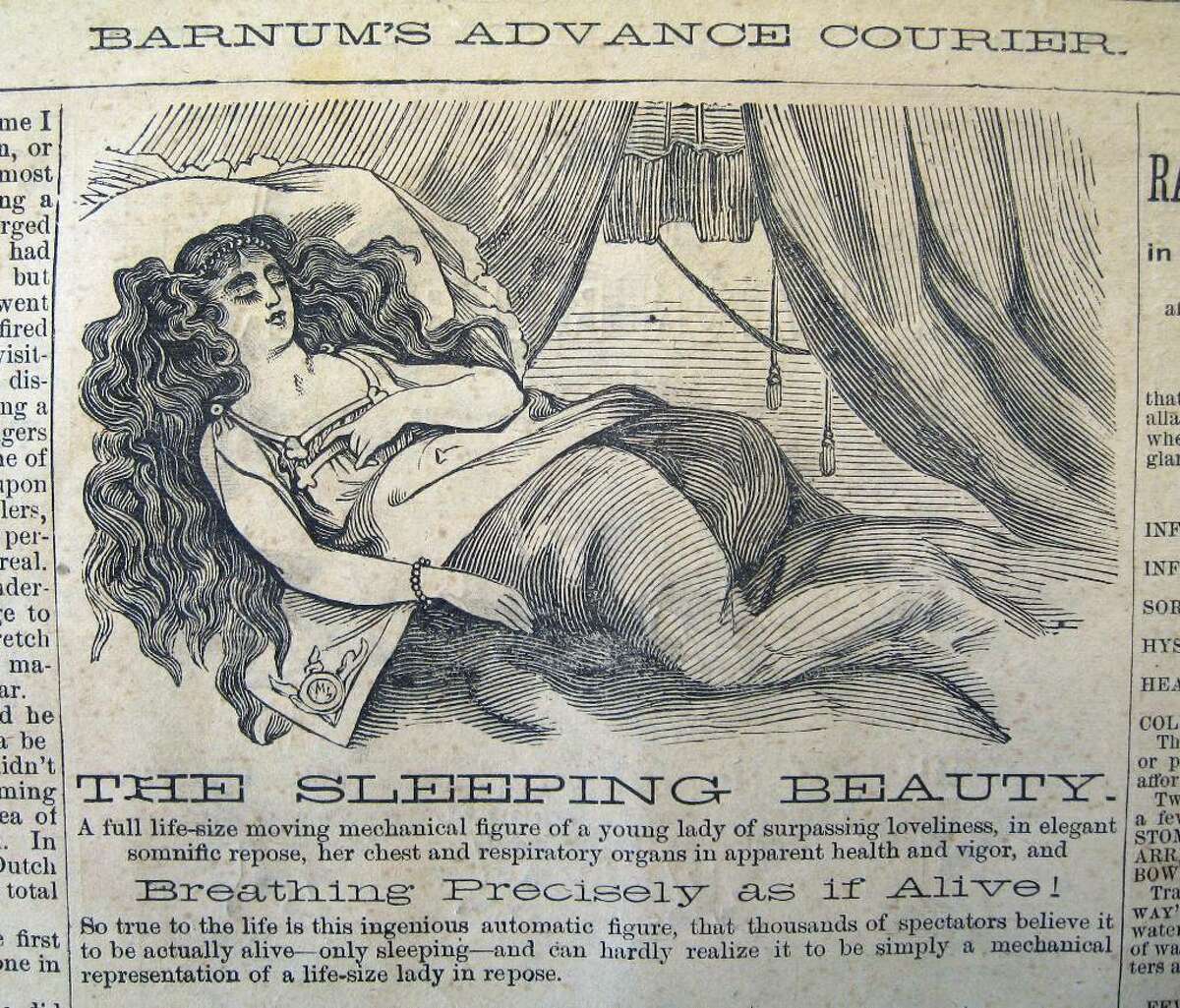
Some of the very first examples of successful American ad campaigns came from P.T. Barnum who drew massive crowds eager to see his 19th century “freak shows”: the “bearded lady”; “the four-legged girl”; “the human skeleton.” Over time, freak shows gave ways to tabloids, which then gave way to reality TV.
Early Duggar viewers tuned in just to peer behind the scenes of a modern day side show. Then, TLC gave them the clickbait and switch — drawing them in based on their morbid curiosity and then shocking, and ultimately endearing, viewers with the family’s perceived wholesomeness.
Notably, Jim Bob and Michelle released a statement the day after Shiny Happy People released critiquing the docuseries for the very thing that got them on TV in the first place, writing: “This ‘documentary’ paints so much and so many in a derogatory and sensationalized ways because sadly that’s the direction of entertainment these days.”
7. Thou shalt build your funnel
Shiny Happy People is replete with marketing language and this is no accident — in Episode 1, Josh Pease says: “They turned every father into a cult leader and franchised spiritual, physical, emotional, psychological abuse.” There’s one f-word — franchise. But then Alex Harris goes onto say, “The goal was to funnel Christian homeschoolers into positions of influence in government.” The second f-word: funnels.
Looking at the Duggars as part of one massive IBLP marketing funnel — "19 Kids and Counting" was the “lead magnet” and the end of the funnel was not simply converting viewers into evangelists for the Duggar’s family values ideology, but converting views into votes.
The Duggars used their platform to campaign for Rick Santorum and Mike Huckabee and their fame opened the door for Josh Duggar to become executive director of the DC lobbying wing of the Family Research Council — to just name a few examples.
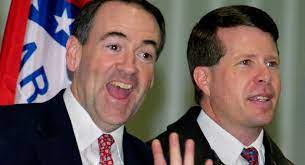
8. Thou shalt grown your downline
The business model of network marketing, another word for multilevel marketing, hinges on a company’s ability to skirt the cost of advertising by relying on individual sellers to do the advertising for them — to their network of family and friends. In this case, Michelle Duggar gave birth to her own downline and TLC gave her and Jim Bob’s 19 brands and counting, a parasocial audience of millions of “friends” to sell the IBLP to.

Also in the Duggar downline were their friends Bates family — another IBLP clan of 19 kids — who were featured on the show and then got a TLC show of their own, “United Bates of America” before they found a more permanent TV home on UP TV with their show “Bringing Up Bates,” which lasted 10 seasons.
Many people see the Bates as the “kinder, gentler” version of the Duggars, but let me set the record straight.
Gil Bates is one of the most powerful leaders in the IBLP today and he was named as a defendant in a 2015 lawsuit against the IBLP for covering up years of sexual assault allegations.
As the Duggars and Bates sold America on their way of life, they recruited a whole new generation of fundamentalist network marketers like The Plaths of TLC’s "Welcome to Plathville," Bethany Beal and Kristen Clark of Girl Defined — who I lovingly refer to as the mothers of modern purity culture, Jill Rodrigues, Paul & Morgan Olliges, Karissa Collins, the list goes on and on…

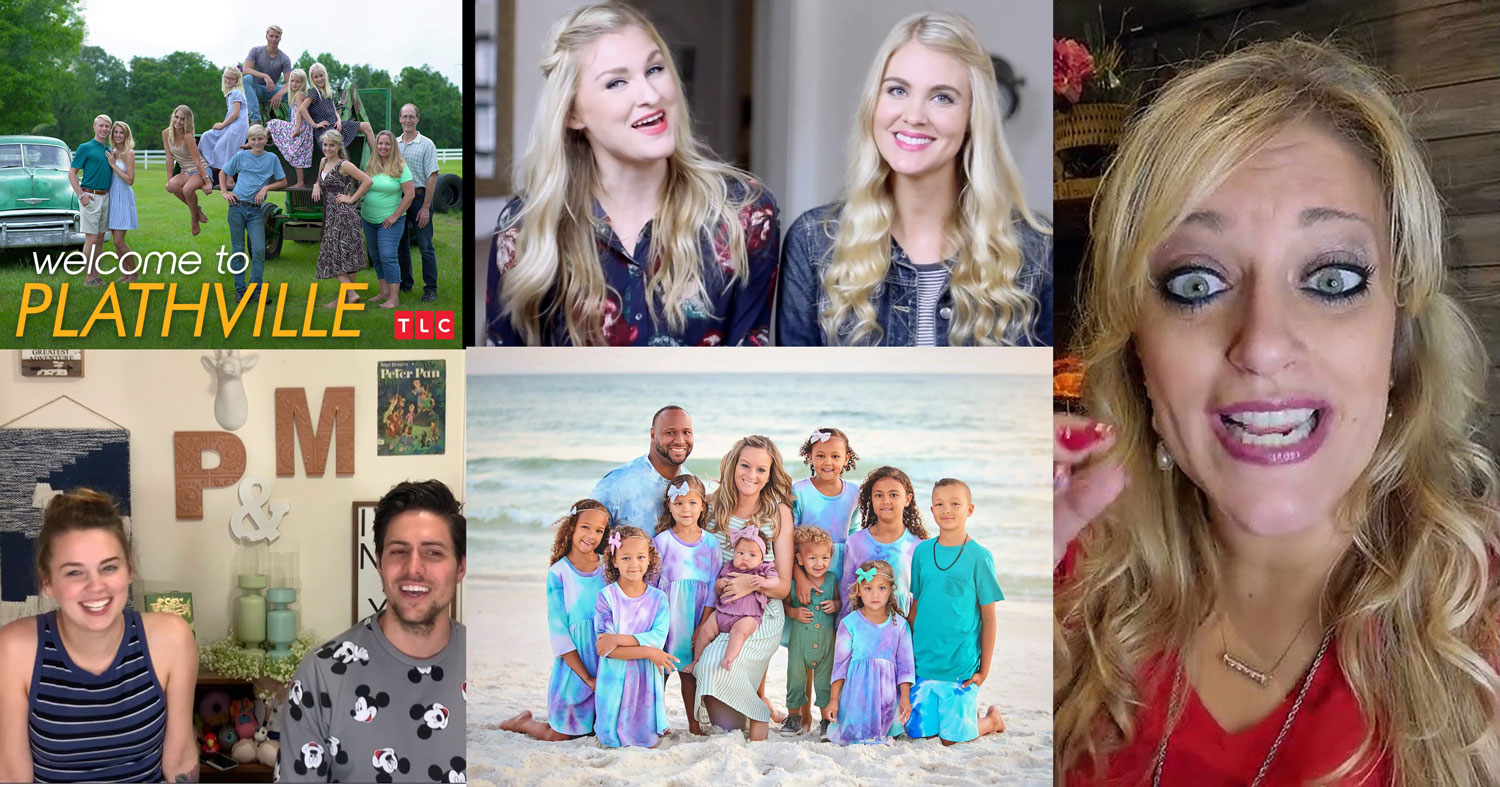
Of course, the calling card of network marketing is that its peddlers will vehemently deny they’re network marketing…and if you look into any of the fundies I just named and their reaction to Shiny Happy People, you’ll see them doing just that.
9. Thou shalt pull yourself up by your bootstraps
Just as the hucksters of online marketing blame their customers for a failure to achieve promised results on having a “scarcity mindset” or not “putting in the work”— God’s grifters teach their audiences that misfortune is a result of sinfulness and not crying out to God.
This is also how abuse gets rebranded within the IBLP inner circle. Women like Anna Duggar are blamed for their husband’s infidelity — and in Josh’s case, sexual crimes — for not being “joyfully available” enough. Sexual assault victims are blamed for what they wore or not fighting back hard enough. In 2016, Jill Simmons, one of Bill Gothard’s victims, described to the New York Daily News how she was abused by Gothard after being sent to stay with him when she spoke up about being assaulted by another IBLP man.
“He would also tell me that it was my fault that I was assaulted and he would ask God to cleanse me,” Simmons said. Gothard told her that her failure to fight back meant she was just as guilty as the man who assaulted her.
This is the Christian fundamentalist version of telling people to “pull themselves up by their bootstraps.”
Your pain, according to the IBLP ideology, isn’t the result of systemic abuse — it’s a function of your faithfulness, or lack thereof. If you are suffering, you don’t need support, advocacy, or protection— you need prayer.
10. Thou shalt die to self
Everything I just described in the first 9 Commandments of Marketing Manipulation is meant to do one thing — override your agency and get you to make decisions from a place of emotion and urgency, instead of intuition.
This is the key to scaling a business and scaling a cult — create a message that’s louder than your audience’s inner voice and keep shouting until they can’t hear themselves think.
The IBLP succeeded in “franchising spiritual, physical, emotional, psychological abuse” as Josh Pease described it, by teaching their followers to surrender their own agency for the authority of God. This is often phrased as “dying to self” — followers are told to disregard their feelings, needs, and discomforts and “die to the self” to fully live their faith.

One of the IBLP’s commands reads, “Suffering for Jesus is not easy; it requires us to die to self and embrace the selfless nature of Jesus. But when we choose to rejoice, God brings us into greater intimacy and fellowship with Himself. (See Phil. 3:10.) God’s goodness and grace is then seen through us and this becomes a tangible testimony of God’s love to those reviling and persecuting us.” In other words, God rewards suffering if you will submit everything — including your mind — to earn his “love.” Love is pain. If you’re hurting, you’re doing it right. And if a little voice inside you tells you that something doesn’t feel right — that’s not you, it’s the devil.
There you have it:
The 10 commandments of marketing manipulation
- Thou shalt build a personal brand
- Thou shalt agitate pain points and promise a magic cure
- Thou shalt fake it ’til you make it
- Thou shalt ride the cultural moment
- Thou shalt sell nostalgia for a non-existent time
- Thou shalt clickbait and switch
- Thou shalt build your funnel
- Thou shalt grown your downline
- Thou shalt pull yourself up by your bootstraps
- Thou shalt die to self
So, where does this leave us? In the case of the Duggars and the IBLP, this story is far from over — because it wasn’t really about the Duggars, to begin with, was it?
In this way, Shiny Happy People itself was a bit of a clickbait and switch — come for the Duggars, stay for the threats to democracy.
The IBLP’s goal was to raise up an army that would spread the message to the far corners of the world, to the point that its origin became imperceptible. Its teachings have spread into homes, schools, and governments across the world until we can’t even recognize where they came from anymore.
But, make no mistake, the culture wars we’re seeing waged in the USA and beyond — the assaults on human rights, LGTBQ+ individuals and families, reproductive health, education, and the rise in extremist violence — have been aided and abetted by the IBLP and their army of zealots.
The hope of this docuseries is that it will allow us to do the opposite of die to self — but to recognize when we see these ideas and practices in the wild and learn how to resist them.
To remember that when we see the far right invoke “family values” or “protecting kids” or “making America Gilead again” — sorry “Great Again” — they are simply following the commandments — agitating pain points and promising a magic cure, riding a cultural moment, selling nostalgia for a non-existent time, and asking America to “die to self” out of obedience to a god they have made in their own image.
Sorry y’all, but that’s just no way to love your neighbor.
Love isn’t pain. Love isn’t persecution. Love is kind. Love is love.
I say, let’s show them how it’s done.
A few notes on what I couldn't cover in this podcast:
Josh Harris and I Kissed Dating Goodbye
This is the same formula Josh Harris used to rebrand himself after he wrote the literal book on Purity Culture that fueled the Duggars and millions like them…and then went on to cover up abuse within his own megachurch.
What did he do when he left the church? He became StoryBrand certified with his ol’ pal Donald Miller, Christian writer turned branding expert, who helped Harris build the purity movement in the 90s.
And there is a precedent for this. Some of the earliest admen were pastors who realized they could use their powers of persuasion for more lucrative ends. These early admen literally evangelized to businesses about the power of marketing to move the masses.
Personal branding is sold as the ticket to our own personal empowerment, but the reality is — personal brands exist in the same marketplace that exists to uphold systems of oppression. We may all have equal access to these tools, but the powerful, connected, and visible can manipulate these tools to effectively re-write history.
When we KNOW someone is skillful at using messaging to manipulate and harm millions — should it not raise a warning bell when they become marketers shaping popular culture? If things ended differently, would we be cool with Jim Jones pivoting into writing Super Bowl ads?
Bethany Beal and Girl Defined
I briefly mention Bethany Beal of Girl Defined and call her one of the "modern mothers of purity culture." Speaking of rebranding, Beal and her sister Kristen Clark have a different phrase for purity culture: biblical womanhood. Their "ministry" centers around rebuking women to submit to "God's good design for women," which might look and sound gentler than IBLP teachings but espouses the same approach to modesty, sex, and submission to one's husband and father.
Girl Defined regularly takes aim at the LGBTQ+ community and their views are violently transphobic. This is one way we can see IBLP teachings bleeding into the greater culture. While Bethany and Kristen deny their affiliation with the IBLP, their parents attended an IBLP seminar while the girls were young and Beal and Clark have spoken about looking up to the Duggars, hoping to emulate them. This is why I describe them as being "recruited" into the IBLP's network marketing scheme.
What troubles me about Girl Defined specifically is that they represent the new wave of fundamentalist influencers that look and sound "mainstream" but whose views are just as insidious as the IBLP's.
Notably, after years of blowing the purity culture message through their bullhorns, Bethany Beal is now in her girl boss era, positioning herself as a "passive income coach" and is now selling a sex course for Christian women. One of the sessions in this course features a couple casually discussing the sexual abuse of an infant as part of their own re-education after being harmed by purity culture.
Girl Defined and Bethany Beal created a problem and are now selling the cure. They continue to profit off purity culture and defend it, including the benefits they gained from Josh Harris and I Kissed Dating Goodbye, all while suggesting the real threat to America is...drag queens?
Keep your eyes open for "mainstream" voices espousing radical, extremist views. The IBLP is everywhere and it goes by many names.
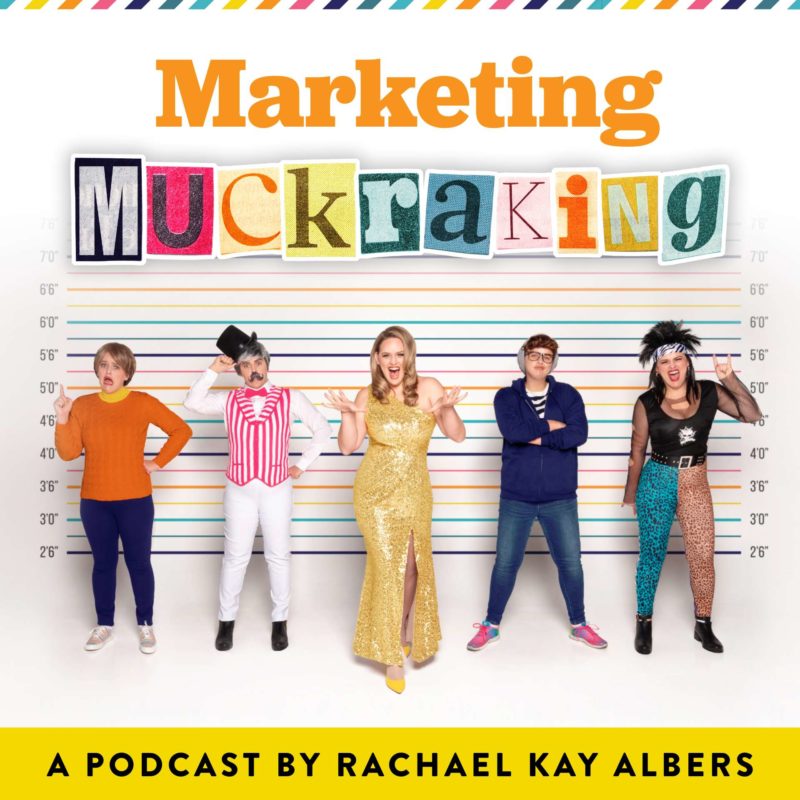
About the Marketing Muckraking podcast
Welcome to Marketing Muckraking, the show that asks not simply what brand culture can do for us, but what it’s doing to us — with your host, creative director, brand strategist gone wild, and the court jester of online business, Rachael Kay Albers — making fun of business and making business fun.
This is the show for rebels, revolutionaries, and renegades who run businesses that burn the rulebook. If you’re sick of business podcasts with all the answers — I’ve got nothing but questions.
Where we swap B School for FREE SCHOOL, easy for honest, and goal digging for marketing in pursuit of meaning.
If you love the show and want to support more marketing muckraking, please subscribe, review, share with your enemies, and if you really want to make my day, you can go to BuyMeARobe.com and leave a little something on the nightstand.

I have no freebie to tempt you with.
No automated email sequence to whisper sweet nothings into your inbox late at night.
Here’s what I do have: a hilarious show on how to market with integrity, sell your services & products successfully, and still not take yourself too seriously. Join me here:
